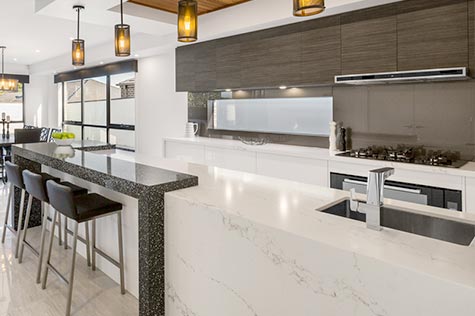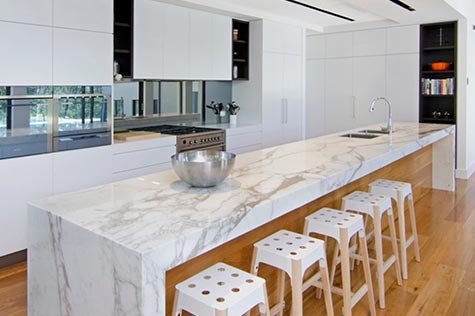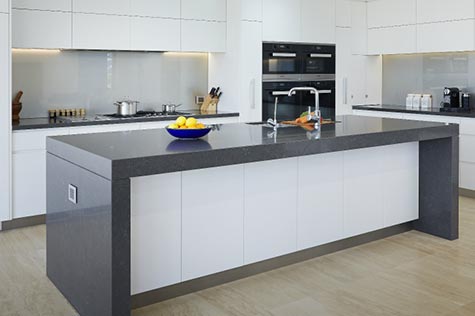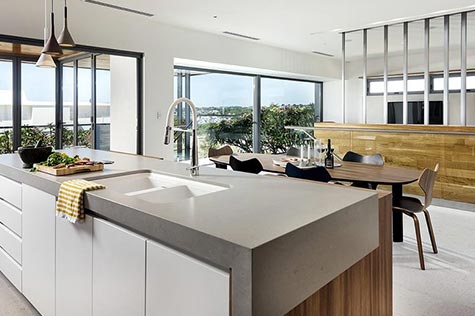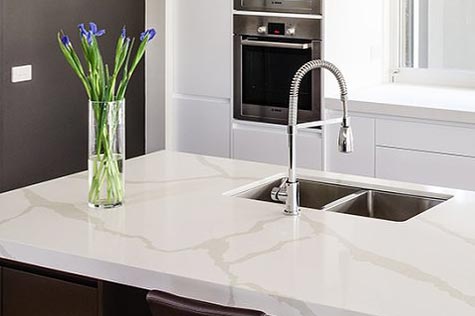A stone bench top can increase the appeal of your kitchen, with a little imagination and a good stone mason you can turn your kitchen bench top into a stunning feature of your home.
Granite and Marble are natural stone materials commonly used for bench tops. However nowadays, composite (engineered) stone is regularly used, it is manufactured in a factory comprising about 95 percent natural stone and 5 percent resin. Natural stone crystals are ground and blended together and then heated to create a solid shape.
If you’re looking for perfect consistency, composite stone is the way to go. Composite stone slabs can be designed and replicated to achieve a specific and consistent look. But because they have a uniform appearance, may lack some unique characteristics or pattern variations that real stone offers.
Be aware however that those unique qualities in natural stone may include flaws and irregularities. Because natural stone is created by the earth, each piece is a unique slice of nature, so slabs may vary in colour, thickness and pattern. The natural divots and fissures in natural stone can make them more prone to cracking. Where as composite stone is harder and heavier and almost impossible to chip or fracture.
Both stone and granite are easy to clean. You will just need to wipe spills with a damp cloth and mild cleaner. Granite tends to be more porous and can stain, especially if acids, colouring agents or oils are involved. Stone is completely non-porous, so it’s very resistant to staining.
When it comes to choosing a material for your bench tops, keep in mind the advantages and disadvantages of natural versus composite stone. Both are beautiful, high-end materials that will make a lasting impression in your home. At Berstan Homes, we have a wide variety of options in both materials and we can help you choose the right fit for your project.
